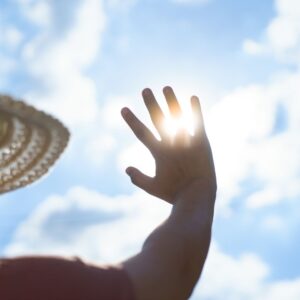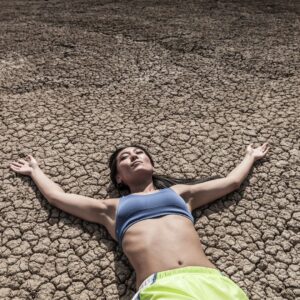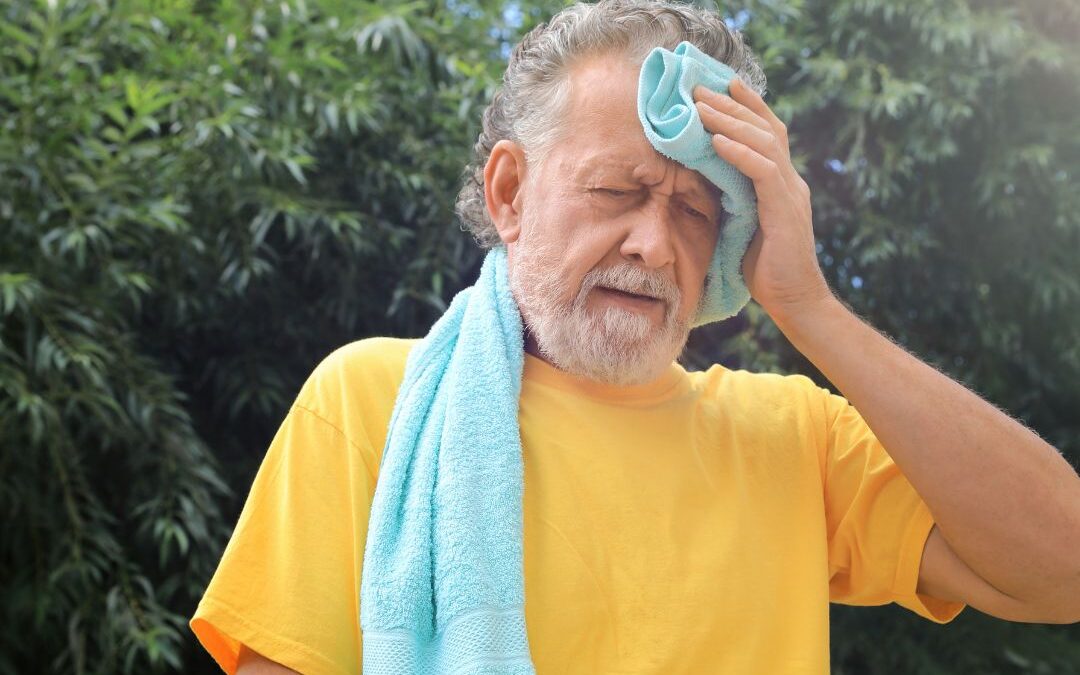With record heat waves sweeping across the world, it’s worth reminding ourselves of some basic tips to beat the heat. And this isn’t just about comfort. Heat-related health problems are serious and can lead to hospitalization or death. And these problems tend to affect people 65 and older more severely for a few reasons. As we age, our bodies have a more challenging time adjusting to changing temperatures and taking the necessary measures to warm or cool us down. This means that when the temperatures rise sometimes, our bodies can’t keep up. People who take a lot of prescription medication are also at higher risk because many medicines affect the body’s ability to regulate its temperature. All of these mean that seniors are generally at a higher risk for heat-related problems like heat stroke.
What is Heat Stroke?
Heat stroke happens when the body heats up faster than it can cool down. It can lead to loss of consciousness or body temperatures of 103 F or higher, which can quickly become deadly.
When watching for heat stroke, it’s essential to look for general dehydration symptoms because not getting enough fluids is a significant cause of heat-related health problems.
Some other signs to look out for when looking for heat stroke symptoms include:
- dehydration headache
- Muscle cramps
- Nausea or vomiting
- Dizziness
- Lack of energy or tiredness with minimal activity
- Dry mouth
- Dry skin (no sweating)
- Low blood pressure
- Rapid heart rate
- Confusion
- Dark-colored urine or less urination than normal
What to do if Someone is Suffering from Heat Stroke
If you suspect that you or a loved one is suffering from heat stroke the most important thing to do is call 911. This is a medical emergency, and a doctor is required. Their body is shutting down to try to preserve life. The person with heat stroke should be moved to a cooler area and cooled down with a damp cloth or a cool bath.
At this point, it is crucial to refrain from giving them anything to drink until they have been checked by a medical professional and stabilized. This is to prevent water from accidentally entering the lungs. A medical professional will give them fluids through an IV.
To summarize:
- Call 911
- Move the person to a cooler place
- Cool their body with a damp cloth or cool bath
- Do not give them anything to drink until they are checked by a medical professional
Heat Exhaustion vs. Heat Stroke
It’s essential to understand the difference between two similar conditions, heat exhaustion vs heat stroke. Both need to be taken seriously but require different treatments.
Heat exhaustion is the milder of the two and can usually be treated at home. But be aware that if heat exhaustion is left untreated, it can quickly turn into heat stroke, at which point it is a medical emergency, and 911 must be called.
The main differences are that if a person is suffering from heat exhaustion, they will be sweating and have cold and clammy skin, and their body temperature should be within a normal range. Once someone progresses to heat stroke, they will no longer sweat and will have dry skin. Their body temperature will also be above an average level.
It is also important to note that a person suffering from heat exhaustion should drink more fluids to help their body regulate their temperature better. A person with heat stroke should not drink fluids.
| Heat Exhaustion | Heat Stroke |
| Headache | Headache |
| Dehydration | Dehydration |
| Heavy Sweating, Cold Clammy Skin | No Sweating, Dry Skin |
| Fast and weak pulse | Rapid Pulse |
| Nausea or vomiting | Nausea or vomiting |
| Excessive thirst | Body temperature above 104 F |

Heat exhaustion can be treated by:
- Moving them to a cooler place
- Drinking water
- Taking a shower or cooling off with a damp cloth
How to Prevent Heat Stroke
There are many ways to prevent heat stroke in you or your loved ones. These include:
- Stay in air-conditioned areas as much as possible.
- Drink plenty of water before you feel thirsty. If you are active or in the heat and start feeling thirsty, it’s because you are already dehydrated. If you are on a fluid restriction for medical reasons, consult your doctor about the proper amount of water, you can drink in a day.
- Wear light and loose clothing.
- Do not engage in strenuous activity.
- Do not rely on a fan if it is sweltering outside.
- Don’t use a stove or oven to cook as it will make your house hotter.
- Take cool showers or baths to cool down.
How Wellness Checks Can Help
Did you know that Meals On Wheels of Contra Costa does more than just deliver food? We also perform what is known as wellness checks. The volunteers who deliver food to seniors stop to check in with the people on their route. This helps to make sure that everyone is doing ok. In light of record-breaking temperatures, this is a vital service. The volunteers are trained to look out for many problems, including signs of heat exhaustion or heat stroke. For a senior that lives on their own, this service means that someone is looking out for them and their safety.
To contact a staff member about signing a senior loved one up for our meal delivery service. We also have many donation options available for anyone who wants to support seniors with our wellness checks!

